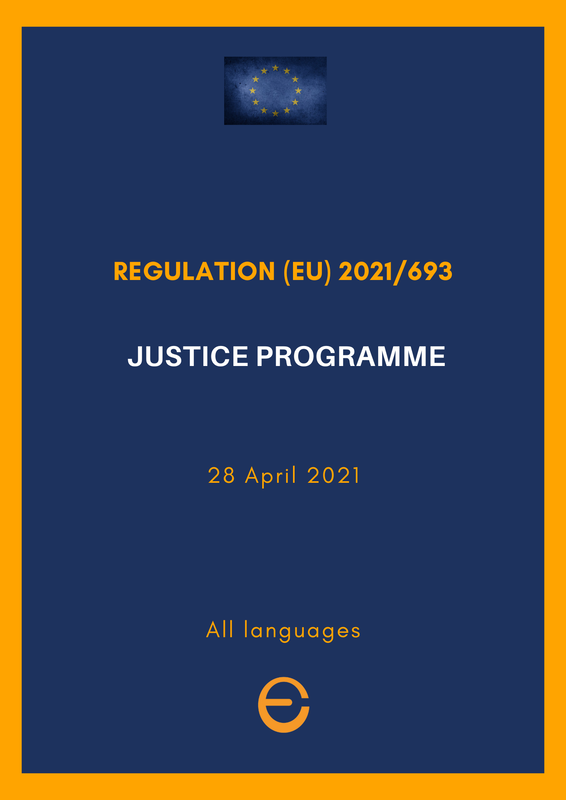|
Brussels, |
|
Justice Programme
The Justice Programme is running from 2021 to 2027. It provides funding to support judicial cooperation in civil and criminal matters such as training to judges and other legal practitioners and effective access to justice for citizens and businesses.
2021-2027 Budget: €300 million
2021-2027 Budget: €300 million
|
Programme & Objectives It contributes to the further development of a European area of justice based on the rule of law, including independence and impartiality of the judiciary, on mutual recognition, mutual trust and judicial cooperation. It is strengthening democracy, rule of law, and fundamental rights. Priorities
Judicial cooperation in civil and criminal matters The objective of projects in this area is to facilitate and support judicial cooperation in civil and criminal matters, and to promote the rule of law, independence and impartiality of the judiciary, including by supporting the efforts to improve the effectiveness of national justice systems, and the effective enforcement of decisions; they should achieve these results:
|
Judicial training
The objective of projects in this area is to support and promote judicial training, with a view to fostering a common legal, judicial and rule of law culture, as well as the consistent and effective implementation of the Union’s legal instruments relevant to civil law, criminal law and fundamental rights, to judicial ethics and the rule of law, by covering training needs' gaps in these fields; they should achieve these results:
Effective access to justice in Europe, including rights of victims of crime and procedural rights in criminal proceedings
The objective of projects in this area is to facilitate effective and non-discriminatory access to justice for all, and effective redress, including by electronic means (e-justice), by promoting efficient civil, and criminal procedures, and by promoting and supporting the rights of all victims of crime as well as the procedural rights of suspects and accused persons in criminal proceedings.
The Justice programme also supports the maintenance and extension of the e-Justice portal which includes useful documents and databases to facilitate access to justice for citizens (e.g. the information on cross-border legal proceedings, rights of victims of crime or defendants in legal proceedings, family law, the Find a Lawyer and Find a Notary interfaces) and businesses (e.g. Interconnected insolvency registers search engines, Business registers, European Payment Order forms and land registers databases, the information on monetary claims and legal professions).
The objective of projects in this area is to support and promote judicial training, with a view to fostering a common legal, judicial and rule of law culture, as well as the consistent and effective implementation of the Union’s legal instruments relevant to civil law, criminal law and fundamental rights, to judicial ethics and the rule of law, by covering training needs' gaps in these fields; they should achieve these results:
- Increased knowledge of EU civil, criminal and fundamental rights instruments among legal practitioners;
- Improved mutual trust between legal practitioners in cross-border judicial cooperation;
- Improved cooperation of training providers of the different legal professions.
Effective access to justice in Europe, including rights of victims of crime and procedural rights in criminal proceedings
The objective of projects in this area is to facilitate effective and non-discriminatory access to justice for all, and effective redress, including by electronic means (e-justice), by promoting efficient civil, and criminal procedures, and by promoting and supporting the rights of all victims of crime as well as the procedural rights of suspects and accused persons in criminal proceedings.
The Justice programme also supports the maintenance and extension of the e-Justice portal which includes useful documents and databases to facilitate access to justice for citizens (e.g. the information on cross-border legal proceedings, rights of victims of crime or defendants in legal proceedings, family law, the Find a Lawyer and Find a Notary interfaces) and businesses (e.g. Interconnected insolvency registers search engines, Business registers, European Payment Order forms and land registers databases, the information on monetary claims and legal professions).
Predecessor Programme
Justice Programme
Predecessor Programme
Justice Programme



